Thinking of the hassle your children or next of kin might go through trying to figure out who should inherit what after your demise should be compelling enough for you to write a will. Court battles and many times family feuds ensue as a result of fighting over the inheritance left behind by a loved one. It gets uglier when children become victims rather than heirs. After the COVID-19 pandemic, it is now clear that it is never too early or too late to write a will. A will gives your spouse, family, friends, and even your colleagues an easy and straightforward way to handle the wealth you worked so hard to earn when you are no more. Again, it is settling to know that after you die your wealth will end up in the hands of the rightful people.
Because it is important to have not just a will but a valid will, this article takes you through all that you need to know about wills.
What is a will?
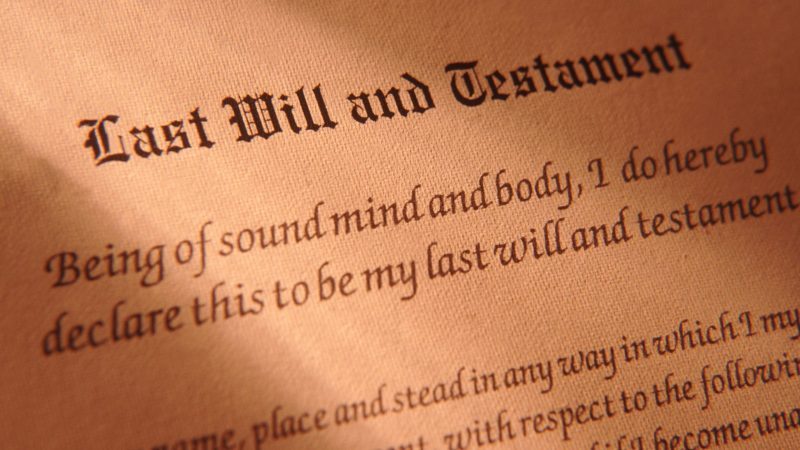
A will is a legal document, usually but not necessarily, in writing that communicates one’s intent concerning the distribution of assets and guardianship of their minor dependents upon his/her death. While writing a will can be overwhelming as far as the planning and the division of one’s estate or the very thought of eventual death, it is important to have one. Failing to write a will is likely to leave these important decisions in the hands of state officials; decisions that may not be in line with your wishes.
A will states who take care of your children and how, who administers your assets, and every other detail you need to put forward in clarity after you have passed on. For a will to be considered valid legally, it needs to bear the signatures of the owner (also known as the testator) and at least two witnesses as well as the date on which it signed in the presence of the witnesses. However, it is vital to check with your state succession laws to ensure that you have the required number of witnesses and that your will is appropriately written.
Why do you need a will?

The importance of a will cannot be overemphasized. Apart from you, the wealth-creator having the final say concerning your hard-earned assets, here is why you need a will.
- It allows you to clearly and precisely plan how your assets will be distributed. You decide who gets what and how much.
- A will help you protect your estate from landing in the wrong hands or in the hands of those you do not intend to be heirs.
- It gives those you leave behind an easy, perhaps shorter time accessing their inheritance. Court processes in the absence of a will are known to be long and costly.
- With a valid will, you state clearly who takes care of your children after your departure. This way, you will be settled knowing that they will be well taken care of in your absence.
- Because wills are not just about asset distribution, a will helps you express your values, life experiences, and valuable lessons that others can pick up.
- A will helps you organize debts and taxes early in advance. Giving to charity is a way of saving on taxes. Better still, giving to charity makes you fulfilled.
5 myths about wills demystified
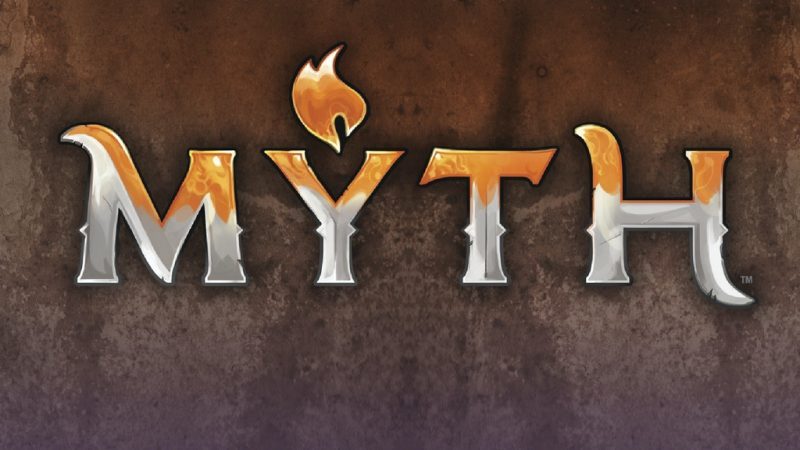
It would be wrong to imagine that:
You are not ready to write a will
This is by far one of the biggest misconceptions one can have about writing a will. As we have already mentioned in our opening, it is never too early to write a will. It could be, however, too late to do so because the dead cannot write a will. You can start thinking about a will at the age of 18 and more importantly when one acquires property, business(es), marries, and/or gets children. Once you have a will, keep updating it to reflect your wishes as time goes by.
Updating your will doesn’t have to take expensive trips to the lawyer.
Wills are too expensive and complex to create
How much it costs to write a will depends on the size of your estate, your financial status, and personal situations like health status, age, and size of the family. It also depends on the attorney and the services you will opt for. Therefore, a will should not be too expensive for the average individual as it is for those with large estates and much wealth. Still, the value of a will is incomparable to the cost you will incur to have it in place. A will can cost as low as $300 or as high as $1,000 or more depending on your situation.
Valid wills do not go through probate
This is not always the case. The advantage of the property that doesn’t go through probate is that it gets to be transferred to the beneficiaries in a short time without a hassle. It is the onus of the property owner to arrange for probate to be avoided. Often, this is done by creating a living trust. Without this arrangement, the property will most likely go through the probate process. However, there are exceptions to probate. For instance, co-owned property with rights of survivorship and the non-probate property is transferred to the surviving owner(s) automatically.
Without a will, your estate is automatically transferred to your spouse
While this is true especially with co-owned assets, it is not guaranteed in single-owned assets. The law will consider your children and most likely distribute your wealth between your spouse and children. If your children have not attained the age of 18, their share of the inheritance will be managed by a public trustee. In some cases, the rest of your family including your grandchildren, parents, siblings, nieces and nephews, grandparents, aunts, uncles, and cousins become beneficiaries of your assets.
Succession laws will always be in favor of your spouse and children
Well, this could be true but it will not always be the case. The state appoints an administrator on your behalf upon your demise, who will be responsible for determining how and to whom your assets will be distributed after clearing all debts (if any) and taxes. It is possible that your wealth may be distributed to people other than those you intended.
Types of wills
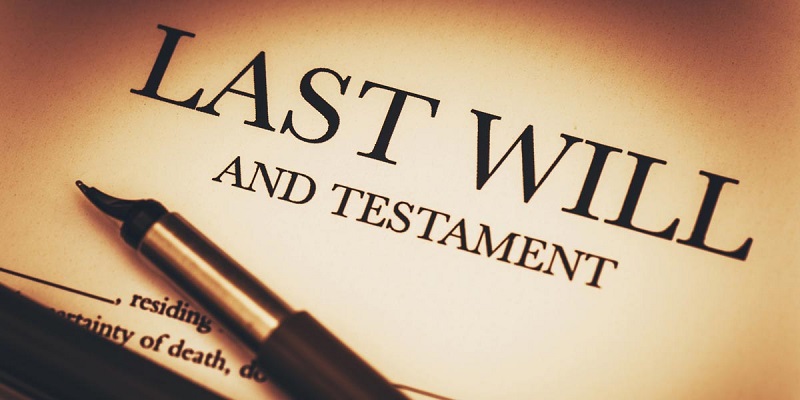
There are several types of wills. Some are written while others are oral. In most states, only written wills are recognized by law.
Simple will
The simple will is more synonymous with ‘a will’. In a simple will, the testator decides who will inherit his/her assets, take care of the minor children, and who will execute their will after their (testator) demise.
Testamentary trust will
A testamentary trust will is created and executed while the testator is still alive, most commonly for beneficiaries who are minors. This type of will places part or all assets under trust and names a trustee to manage the trust on behalf of the beneficiaries. This will may include several trusts and the testator is allowed by law to name himself/herself as one of the trustees. Beneficiaries will receive the benefits according to the conditions dictated in the trust.
Joint will
As the name suggests, a joint will is made by two or more people, mostly spouses. Upon the death of one of the testators, all assets are passed on to the other. If the second testator dies, the assets are inherited by their children. Joint wills are binding and inflexible, as such, they cannot be altered after the death of one partner. Not all states recognize joint wills.
Living will
A living will, also known as a healthcare directive or advanced directive, does not apply to property but to one’s health. It outlines the healthcare wishes of the owner specifying the medication and medical care one would want to receive (or not receive) if they become incapacitated. This type of will is commonly written by people who face life-threatening illness or injury.
Deathbed will
A deathbed will is a last-minute will created in a situation where the testator is facing imminent death. This will is often created hurriedly and never allows time for careful planning of one’s estate. There are times when a deathbed will is spoken and not written. This type of will can be easily contested by disgruntled beneficiaries, especially if it revokes a previous will, on the grounds of the testator not having the mental capacity to draw the will or being unduly influenced when writing the will.
Oral (Nuncupative) will
An oral will is a spoken will. Not all states recognize oral wills unless perhaps they are created in an emergency. Most deathbed wills are oral wills given that the testators may be too ill to write the will. In this case, witnesses should be present and the will put down in writing as soon as stipulated by law.
What is an ethical will?

Unlike the other wills whose purpose is to distribute wealth, transfer the administration of estates, or communicate healthcare wishes, the ethical will is a personal document written to communicate or pass down one’s values, experiences, and life lessons to future generations. An ethical will is not bound by any law.
What are the requirements for writing a will?
Writing a will is important. Writing a will as required is crucial. This is because it will save you or your kin a lot of trouble when it comes to revoking or executing the will. Each state has specific conditions that have to be met for a will to be valid. However, some conditions are common to most if not all states. The individual intending to write a will should
- Have attained the legal age of 18 at least in 48 states. In Louisiana, one can write the will after attaining age 16 while in Georgia, the age is 14. However, there are cases where the law provides for those who are younger to write a will. For instance, if they are married, are members of the armed forces, or are independent economically in other words, an emancipated minor.
- Be of sound mind and have a clear understanding at the time of writing the will.
- Be in writing (typed or handwritten) and bear the signature of the testator and date which is written on each page. The will should be signed in the presence of the number of witnesses required by state law whose signatures should also appear on each page of the will. Witnesses should be 14 years of age and above and be of sound mind.
- The testator and witnesses should sign the will in the presence of each other.
- A thumbprint is recognized in place of a signature where the testator is not in a position to append a signature. It is important, however, to note that the thumbprint should be certified by a commissioner of oaths for it to be valid.
- Witnesses to the will should neither be beneficiaries nor close relatives.
- Write the will in the appropriate language as required by state law.
- A will should name an executor who in some cases should be a member of the same state as the testator.
- Update the will from time to time after a major life event.
The scope of a will
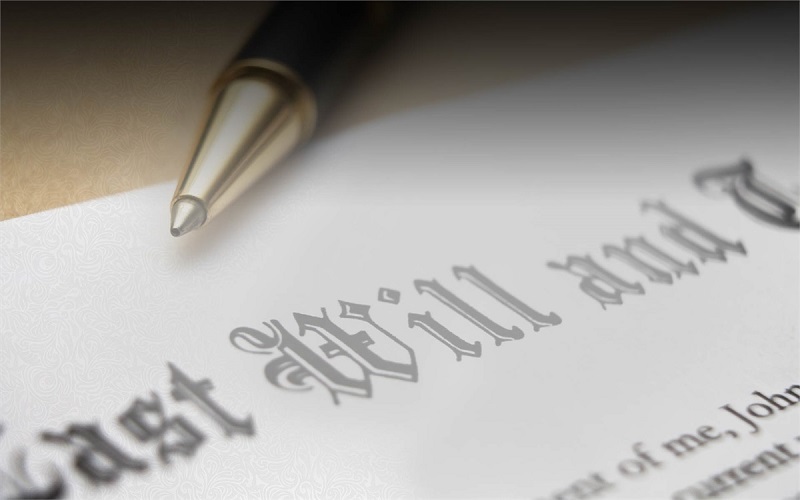
A will allows you to be as detailed and as specific or as general as you wish with regard to the distribution of your assets. However, some assets cannot be dictated by the will. These include
- Joint tenancy property with rights of survivorship.
- Pension plans, IRA, and retirement plans like the 401(k) (By law, the current spouse becomes the beneficiary of this account) or the beneficiary stated at the time of opening the account.
- Individual retirement accounts.
- Life insurance policies.
- Proceeds from accounts like Totten trusts and PODs (Payable on death) proceeds to go to beneficiaries indicated at the time of opening the account.
- Proceeds from regular bank accounts i.e. savings accounts and CDs accounts which require one to select a beneficiary for transfer on death (TOD).
Properties with listed beneficiaries require that a death certificate be presented for a transfer to be executed. On the other hand, however, cases, where a beneficiary has not been listed in an account, will mean that the assets go into a probate process to establish beneficiaries.
5 critical decisions to make when creating a will
You have now settled on writing a will. The next thing you need to think about is how you are going to go about it. Estate planning is worthwhile but no easy task. Here are some points you will need to consider as you write your will.
Which assets go into the will?
To know what to include and what not to include in your will you need to have taken stock of all your assets. For most of your assets and items, you will have a choice of whether to include them in the will or not. However, take note of the non-will items listed above and be sure that the right people are listed as beneficiaries to avoid the long often complicated probate cases when you pass on. It is also important to note that if you are married, separate wills are better and easier to execute than joint wills.
A typical list would include single owned property such as land and buildings; cash in your savings, money market, and checking accounts; intellectual property like royalties and copyrights; and intangible personal property like bonds and stocks among other assets like furniture, vehicles, and jewelry.
NB: As much as digital property like social media and email accounts are your personal property, they are not transferable to anyone according to the law.
Who gets what?
Once you have all your assets listed, it is time to decide who gets what. A beneficiary can be anyone including immediate family, relatives, friends, acquaintances, pets, strangers, church, charity organizations, or other institutions but not yourself or witnesses to your will. You are the best person to allocate your wealth, therefore make your will as precise and as detailed as possible to make it easy for your beneficiaries. Careful not to forget valuables like silver coins or portraits that have been handed down from one generation to another. Oftentimes these are the most probable causes of family feuds. Finally, it would not be a bad thing to have a healthy discussion around who gets what with your family or the beneficiaries.
Who takes care of your minor children and dependents?
After allocating assets, you will then need to appoint a guardian to your young children and dependants. Failing to do so means that the law takes its course in choosing the best possible guardian for your kids who may not be best in your eyes. For married or divorced couples, the remaining spouse or ex-spouse will most likely take over raising the kids. In different situations, you may opt for your siblings, close relatives, grandparents, or even godparents. Be extra cautious when choosing a guardian for your child or dependant with special needs. Engaging would-be guardians from time to time after writing your will so that they are aware of and understand the task ahead of them is very important. Be sure, that they are not only willing but also capable of raising your children in your absence and that your children will be comfortable being raised by them.
Who executes your will?
An executor is a person who makes sure that everything happens according to your wishes after you pass on. In the absence of a will, the court appoints an executor on behalf of the deceased. The executor should be someone, previously not convicted, whom you can trust to account for all your assets and facilitate their transfer to the rightful heirs when you die. He is also the person that will ensure that debts and taxes are settled. An executor should be aware of such details as:
- Where the original will is stored and how to access it
- The attorneys/agents listed by the testator and their roles
- The wishes of the testator about burial and funeral
Who handles the assets and finances for your kids when you’ll be gone
For better management of their children’s finances and assets, some people opt for separate guardians for the children and finances. This person gets the money and assets allocated to your children to manage and make decisions in their best interest.
Creating a will
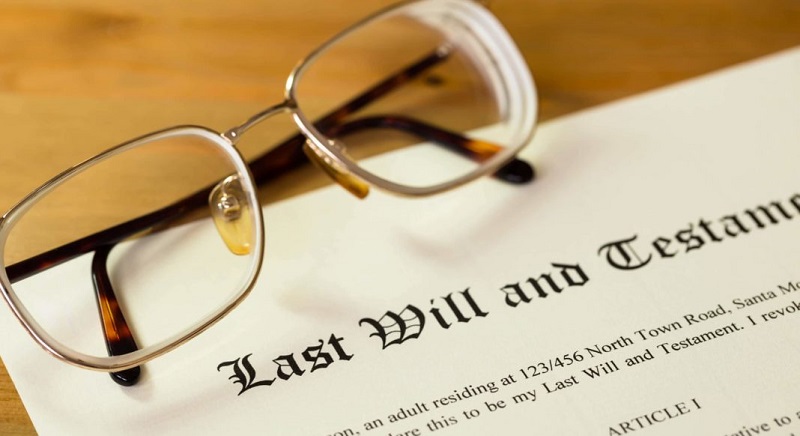
Writing a will is no mean feat. It will probably take longer and more effort than you imagined, but you will be settled knowing that things will run as you had intended after you are gone. There are three ways one can write a will
Write it down yourself
If you decide to write a will for yourself, you need to be aware of your state laws and regulations concerning the recognized types of wills, the required number of witnesses, debts, and taxes, and other requirements. You should also be able to list all your assets and separate those that should and those that should not be included in the will. This may be pretty easy for someone with few assets but quite complicated for someone privileged to have built a complex estate and substantial investments.
The online route
Online DIY sites like Nolo, LegalZoom, Rocket Lawyer are available to help you draft, sign, and print out your will for free or at a relatively small fee. These sites offer you a template that fits the requirements of your state laws and is easier to use compared to creating a will from scratch.
Engage the services of an attorney
While online wills are convenient to use, they may not suffice in complicated situations. Again, it is not a requirement that one engages the services of an attorney when writing a will. However, the legal guidance they offer in writing a valid will cannot be underestimated. For instance, in cases of multiple marriages, children from previous marriages, several businesses, estates that incur taxes, trusts, and assets spread out in different states or overseas, it is recommended that the services of an attorney be sought. This is because the online will can overlook important details.
Advantages of working with an attorney

- You get face-to-face legal professional guidance
- Creating a will through the help of an attorney is flexible and more personalized to capture your specific wishes and intents
- This will help you eliminate the hassle of reading through state laws and regulations to know how to write your will. You ride on the knowledge of the attorney.
Finally, whether you are writing a will yourself, doing it online, or engaging the services of an attorney, you will still need to go the extra mile to arm yourself with basic knowledge about writing wills. You can check The American College of Trust and Estate Counsel and The National Academy of Elder Law Attorneys or check with your state’s department of aging.
Where to store your will

Once your will is written, signed in the presence of witnesses, and you have confirmed that it is valid, it is ready to be stored. You may want to update it later after important life events but of importance now is that the will is safely stored. As you think about storing your will away, consider that your storage place should be easily accessible and that at least one person is aware of and can access this location. Here are some storage options you can consider:
- In a safe
You may want to store your will along with other important documents in a safe. This will make it easy for the executor, your family, and friends since all documents will be in one place. Your safe should be in an accessible location and at least one person should have access to it.
- With an attorney
Many attorneys offer to store your will on your behalf in their offices or elsewhere in a safe place. In this case, your family should be informed.
NB: Avoid storing your will in a safe deposit box. You don’t want to drag your family to the court just to have access to the safe deposit.
After death

Two business people signing a contract
You are now settled. You have your will written and it is safely stored. What next? You are probably curious to know what will happen when you pass on. Here is what happens:
- Your executor obtains the will and death certificate and presents it in the probate court in the state where you were living before your demise.
- Probate proceedings commence establishing the validity of the will after which the executor is presented with a letter of administration (also known as a letter of testamentary). This letter grants the executor permission to start locating the assets of the testator based on the inventory in the will. Probate proceedings can take anywhere from several months to more than a year depending on the complexity and size of the testator’s estate. The executor may at this point engage your attorney to help with the paperwork.
- The testator’s estate is then open for administration. During this period, the estate should remain open for at least six months to give time to creditors to present their claims. Once this period is over, the estate is closed for distribution of assets and a tax clearance obtained from the state department of revenue in cases where the estate incurred state estate tax.
- Distribution of the estate is done to the beneficiaries listed in the will once all debts and taxes are settled.
- The executor should keep a report of how the estate is distributed for transparency’s sake.
Read our Funeral Planning Checklist.
Reasons why probate cases drag
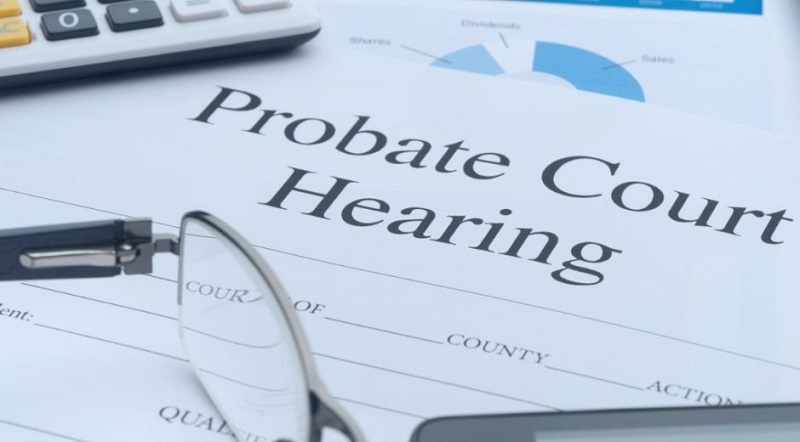
There are several reasons why probate cases can take one or more years. These include:
- Family feuds. Family feuds most often lead to the will being contested. Mostly, this happens where a will has not been left behind and the family members or the children of the deceased are at war concerning the fair distribution of assets. In other cases, the beneficiary may feel that the will has unfairly allocated inheritance, especially where someone feels that they were entitled to but did not get any assets allocated to them. In this case, the court steps in.
- A large complicated estate. When the estate is so large as to accrue state estate tax, then tax returns have to be filed when due and this may take some time approximately the normal nine months plus a possible six months extension granted by law to file returns.
- When the estate receives continuous income. A lot has to be determined in such cases which may cause the case to drag.
Handling unpaid debts after the death of the testator
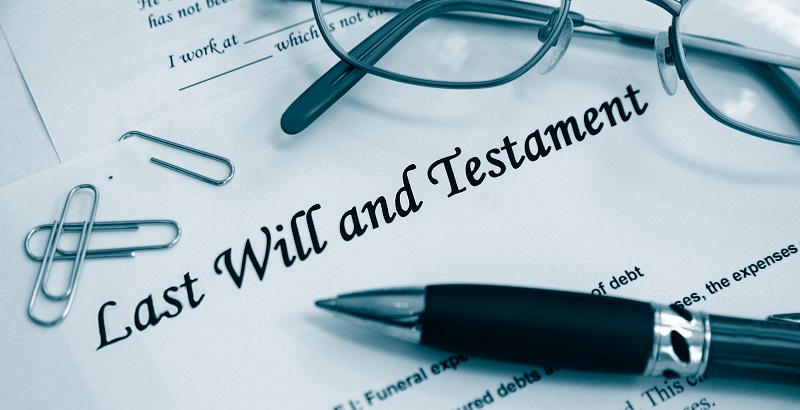
As we have already seen, creditors are given a window period of at least six months to claim debts upon the demise of the testator. This they will do through probate. If a surviving spouse takes up the administration of the estate (like in the case of a joint will) then he/she will be responsible for debts settlements without the creditors going through probate. It is also important to bear in mind the non-will assets that do not go through probate.
Debt settlement depends on a few factors. For instance,
- The type of debt
- The state laws that govern how creditors can claim debts against the deceased’s estate. (Estate is the term that refers to a person’s assets, no matter the size, after death).
- The state law on prioritizing the debt that the estate can settle and those that the estate cannot settle.
Examples of debts that the estate can settle include funeral expenses, administration costs, taxes (we shall look at this in the next topic), and medical bills if any. If the estate value is lower than valid debt claims, the estate is declared insolvent. For some states, the living spouse inherits the debts of the deceased that were acquired after their marriage under community property laws.
Taxes
A federal estate tax may accrue for large estates worth $5 million or more for an individual or $10 million or more for couples. Other states have their special tax administered on a person’s estate. This tax can be a significant deduction of your beneficiaries’ assets. In such situations, it is prudent for the testator to consider during estate planning and where possible pay up estate tax to prevent it from being passed on to his/her loved ones.
Other beneficiaries may incur inheritance tax. The difference between estate and inheritance tax is that while the former is accrued by the estate, the latter is accrued on the beneficiary against his/her share of the inheritance. Not all states charge tax on inheritance. Therefore, it would be good to check with your state’s department of revenue.
A contested will
A contested will is a will that is challenged in the probate court most often from beneficiaries, child, spouse, devisee, creditor, or others who are dissatisfied with the terms of the will. Most cases against a valid will rarely succeed.
Challenging a will can be, as mentioned previously, based on the ground that the testator may have not had the mental capacity to write the will, they may have written and signed the will under duress, or on grounds of fraud.
A will can also be contested if at the time of its writing, did not conform to the state regulations or if the will itself does not comply with the state requirements. In this case, the court is left to make the fairest possible decision.
Intestacy
Intestacy is a situation in which one passes on and does not leave behind a will. In this case, the state court will decide how one’s estate will be distributed among the beneficiaries determined by it through a probate process. The court appoints an administrator to handle the estate and also decides who takes care of your minor children in your absence. In many cases, one’s assets end up in the hands of close blood relatives. Each state has its succession laws governing intestacy. In a situation where the deceased has no heirs, his/her assets are claimed by the state.
Conclusion
Once you have written a valid will, it may not be final until your demise. Some life situations like the birth or adoption of a child, acquisition of property, the demise of a beneficiary in your will, or even changes in the law governing estates are a few reasons that will require you to review your will. Still, you can decide to review your will annually just to be sure that it reflects your current wishes. Bottom line, a will is worth your time and effort since it allows you to communicate your intent in detail and have the peace of mind that after you are gone the rightful beneficiaries get to inherit their share of your properties and estate without much hassle.


















